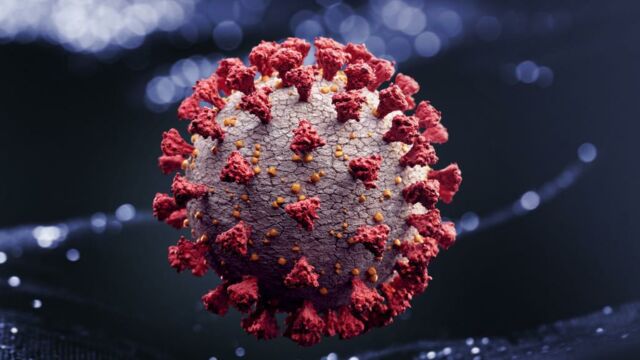After recovering from coronavirus some will still go on to suffer from symptoms of fatigue and impaired lung function for months on end. The pattern of symptoms coined as ‘long COVID’ occurs when small pockets of infection linger in parts of the body or change the way the body functions, which can affect the suffer’s day to day life.
Discover our latest podcast
However, a recent study has suggested thatthere may be a way to predict instances of long COVID in advance.
Can we predict long COVID?
Researchers from Cambridge University conducted a study, observing 207 people who tested positive for coronavirus over the course of three months. The study compared blood tests of those infected with non-infected persons and found that those who were asymptomatic or had very mild symptoms showed a more robust and adaptive immune response to the virus.
Meanwhile, those who required hospitalisation often had a weaker immune response and often dealt with the virus for longer. Researchers identified that a weakened immune response to coronavirus was characterised by an inflammation of several organs which tended to occur in some patients right after contracting the virus.
The adaptive and robust immune response garnered by those who had an easier time fighting the virus was characterised by the body’s ability to identify the infection and produce larger amounts T and B cells within the first week of infection. Afterwards, the number of these cells goes back to normal rather rapidly.
However, for those hospitalised, their blood tests showed more abnormalities in the presence and production of their white blood cells. The first author of the study, Dr Laura Bergamaschi commented:
It's these populations of immune cells that still show abnormalities even when everything else seems to have resolved itself that might be of importance in long COVID.
Senior co-author of the study Dr Paul Lyons then went on to explain that by improving the immune system and addressing the body’s inflammatory responses, cases of long COVID could actually be avoided:
This finding could have major implications as to how the disease needs to be managed, as it suggests we need to begin treatment to stop the immune system causing damage very early on, and perhaps even pre-emptively in high-risk groups screened and diagnosed before symptoms develop.
However, the paper has yet to be peer reviewed and a larger study may help to better confirm whether these blood tests and immune responses are a truly reliable indicator of long COVID or severe coronavirus symptoms.
Do people recover from Long Covid?
Prof Chris Brightling, from the University of Leicester, recently spoke to the BBC about his PHOSP-Covid project which tracks the development and recovery of people with long COVID. The professor announced that there have been fewer cases of the long-term virus over time.
However, coronavirusonly emerged in the public at the end of 2019 so there no long term data as yet as to whether or not people really recover from long COVID. Professor Brightling clarified stated:
We've asked, deliberately, to follow people for 25 years, I certainly hope only a very small number will have problems going beyond a year, but I could be wrong.
The researcher went on to say that even if people do recover from long COVID, they may still suffer in the long term. The professor pointed out that people with similar conditions such as chronic fatigue syndrome tend to have flare-ups, which sparks the concern that long COVID victims could contract it again or have it return periodically:
If long Covid follows the same pattern I'd expect some recovery, but if it takes just another coronavirus infection to react then this could be every winter.
The unknown aspects and potential dangers of long COVID make it even more important for people to follow coronavirus rules such as social distancing, hand hygiene and mask-wearing in order to protect both yourself and the people around you.
What should you do if you have long COVID?
If you suspect that you may be suffering from long COVID then the NHS has recently created aCOVID Recovery Plan. The plan made specifically for those who were hospitalised recommends following the ‘three Ps—’pacing yourself, prioritising tasks and planning your day in advance—in order to preserve energy.
However, if you are experiencing new symptoms, worsening symptoms, or are having trouble executing daily tasks then it is wise to seek medical assistance.















